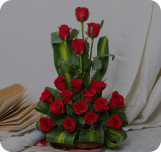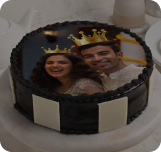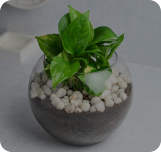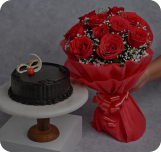How to Celebrate Diwali
How is Diwali Celebrated?
Diwali is a five-day festival and a very auspicious festival for Hindus. It is one of the main and important festivals for Hindus which signifies the victory of 'light over darkness’ and 'good over evil’. This festival is celebrated all over the world by Hindus. Furthermore, you can get the main attraction and importance of this auspicious festival only in India. During the festival, Hindus, Jains, and Sikhs illuminate their homes, temples, and workspaces with diyas, candles, and lanterns. Diwali is also marked with fireworks and the decoration of houses with rangoli designs and jhalars. Food is a major focus with families partaking in feasts and sharing mithai. The festival is an annual homecoming and bonding period not only for families but also for communities and associations.
In urban areas, various activities, events, and gatherings have also been organized. Diwali is a post-harvest festival celebrating the arrival of the monsoon in the subcontinent. Depending on the region, celebrations include prayers before one or more Hindu deities, the most common being Lakshmi. Rituals and preparations for the Diwali festival begin days in advance, typically after the festival of Dussehra. The festival formally begins two days before the night of Diwali and ends two days thereafter. Each day has the following rituals, celebrations, and significance.
Day 1 - Dhanteras, Dhanatrayodashi, Yama Deepam
Dhanteras name is derived from 'Dhan’ meaning wealth and 'teras’ meaning thirteenth. It marks the thirteenth day of the dark fortnight of Kartik and the beginning of Diwali. On this day, many Hindus clean their homes as well as offices. People lit diyas at their house. Women and children decorate doorways within homes and offices with rangolis, colorful designs made from rice flour, flower petals, colored rice, or colored sand. Boys and men decorate the roofs and walls of homes and string up lights and lanterns. On Dhanteras, people also purchase new utensils, home equipment, jewelry, firecrackers, and other items. People also purchase gold and silver items. It is said that buying metal on Dhanteras is very auspicious. On the evening of Dhanteras, families offer prayers to Lakshmi and Ganesha and lay offerings of puffed rice, candy toys, rice cakes, and batashas.
On Yama Deepam, Hindus light a diya made of wheat flour and filled with sesame oil that faces south in the back of their homes. This is believed to please Yama the god of death and to ward off untimely death. Some Hindus observe Yama Deepa on the second night before the main day of Diwali.
Day 2 - Naraka Chaturdashi, Kali Chaudas, Chhoti Diwali, Hanuman Puja
Naraka Chaturdashi, also known as Chhoti Diwali, is the second day of festivities. It is the fourteenth day of the second fortnight of the lunar month. The term "Naraka" means hell and "Chaturdashi" means "fourteenth". The day and its rituals are interpreted as ways to liberate any souls from their suffering in hell as well as a reminder of spiritual auspiciousness. For some Hindus, it is a day to pray for peace to the defiled souls of one's ancestors and light their way for their journeys in the cyclic afterlife. A legend related to this festive day is the destruction of the demon Narakasura by Lord Krishna that frees 16,000 imprisoned princesses.
Naraka Chaturdashi is also a major day for purchasing festive foods, mainly sweets. A variety of sweets are prepared such as laddus, barfis, halwa, kachoris, shrikhand, and sandesh. Moreover, rolled and stuffed delicacies such as karanji, shankarpali, maladu, susiyam, pottukadalai are also prepared on this day. Confectioners and shops sell these sweets in large quantities which are stocked by people to welcome guests and as gifts. Families also prepare homemade delicacies for Lakshmi Pujan. Chhoti Diwali is also a day for visiting friends, business associates and relatives, and exchanging gifts.
On the second day of Diwali, Hanuman Puja is performed in some parts of India, especially in Gujarat. It coincides with the day of Kali Chaudas. It is believed that spirits roam around on the night of Kali Chaudas. Hanuman, who is the god of strength, power, and protection, is worshipped to seek protection from the spirits. Diwali is also celebrated to mark the return of Rama to Ayodhya after defeating the demon-king Ravana and completing his fourteen years of exile. The devotion and dedication of Hanuman pleased Rama so much that he blessed Hanuman to be worshipped before him. Thus, people worship Hanuman the day before the main day of Diwali.
Apart from this, this day is commonly celebrated as Diwali in Tamil Nadu, Goa, and Karnataka. Traditionally, before sunrise, Marathi Hindus and South Indian Hindus receive an oil massage from the elders in the family on the day and then take a ritual bath. Many visit their favorite Hindu temple.
Day 3 - Lakshmi Pujan, Kali Puja
The third day is the main day of the Diwali festival. It coincides with the last day of the dark fortnight of the lunar month. This is the day when Hindus, Jains, and Sikhs enlight their homes and temples to celebrate the festival of lights. The word Deepawali comes from the Sanskrit word eep’ which means an Indian lantern/ lamp. On this day, the youngest members of the family visit their elders. Furthermore, offices either do not open or close early on this day allowing employees to enjoy family time. Also, employees perform puja rituals on their office premises.
As the evening approaches, celebrants wear new or best outfits. Teenage girls and women wear saris and jewelry. At dusk, family members gather for the Lakshmi Pujan. Although, prayers have also been offered to other deities such as Ganesha, Saraswati, Rama, Lakshmana, Sita, Hanuman, or Kubera. The diyas from the puja ceremony are then used to light more diyas. Then, they are placed in rows on the premises of temples and houses. After the puja, people go outside and celebrate by lighting up fireworks together and then share a family feast and sweets. The puja and rituals in the Bengali Hindu community focus on Goddess Kali instead of Goddess Lakshmi and the main focus on Diwali is on the Kali puja.
On the night of Diwali, rituals across India are mainly dedicated to Goddess Lakshmi to welcome her into homes and bring prosperity as well as happiness for the coming year. Vaishnava families recite Hindu legends of the victory of good over evil and the return of hope after despair on the Diwali night where the main characters may include Rama, Krishna, Vamana, or one of the avatars of Vishnu, the divine husband of Lakshmi. At dusk, lamps placed earlier in the inside and outside of the home are lit up to welcome Lakshmi. Family members light up firecrackers, which some interpret as a way to ward off all evil spirits and the inauspicious, as well as add to the festive mood.
The celebrations and rituals of the Jains and the Sikhs are similar to those of the Hindus. Major temples and homes are decorated with lights, festive foods shared with all, friends and relatives visited each other with gifts.
Day 4 - Annakut, Balipratipada (Padwa), Govardhan Puja
The day after Diwali is the first day of the bright fortnight of the lunisolar calendar. It is regionally called Annakut, Padwa, Govardhan puja, Bali Pratipada, Bali Padyami, Kartik Shukla Pratipada and other names. According to one tradition, the day is associated with the story of Bali's defeat at the hands of Vishnu. In another tale, it is thought to reference the legend of Parvati and her husband Shiva playing a game of dice on a board of twelve squares and thirty pieces. In this game, Parvati wins and in return, Shiva surrenders his shirt and adornments to her. This day ritually celebrates the bond between the wife and husband, In some Hindu communities, husbands will celebrate this with gifts to their wives. In other regions, parents invite a newly married daughter, or son, together with their spouses to a festive meal and give them gifts.
In some rural communities of the north, west, and central regions, the fourth day is celebrated as Govardhan puja. It is celebrated to honor the legend of the Hindu god Krishna saving the cowherd and farming communities from intense rains and floods triggered by Indra's anger by lifting the Govardhan mountain. The agricultural symbolism is also observed on this day by many Hindus as Annakut meaning mountain of food. Communities prepare over one hundred dishes from a variety of ingredients, which is then dedicated to Krishna before shared among the community. Hindu temples on this day prepare and present mountains of sweets to the faithful who have gathered for darshan. In Gujarat, Annakut is the first day of the new year and celebrated through the purchase of essentials or sabras such as salt, offering prayers to Krishna, and visiting temples.
Day 5 - Bhai Dooj, Bhau Beej, Vishwakarma Puja
The last day of the festival is called Bhai Dooj, Bhau Beej, Bhai Tilak, or Bhai Phonta. It celebrates the bond between a sister and a brother. It is similar in spirit to Raksha Bandhan. This festive day is interpreted by some to symbolize Yama's sister Yamuna welcoming Yama with a tilaka, while others interpret it as the arrival of Krishna at his sister Subhadra’s place after defeating Narakasura. Subhadra welcomes him with a tilak on his forehead. On this day, the sisters perform a puja with prayers for the wellbeing of their brothers, then return to a ritual of feeding their brothers with their hands and receiving gifts.
The artisan Hindu and Sikh community celebrates the fourth day as the Vishwakarma puja day. Vishwakarma is the presiding Hindu deity for those in architecture, building, manufacturing, textile work, and crafts trades. The looms, tools of trade, machines, and workplaces are cleaned and prayers offered to Lord Vishwakarma.
What You Can Do on Diwali
If you are looking for the best way to celebrate the Diwali festival, then here are some of the best tips for you.
Spend Some Quality Time with Family
The best way to celebrate Diwali is with your family. You can spend some time together with them. You can catch up on some really good memories of yours. Furthermore, spending time with family can make your bond stronger. Sometimes, due to work and daily routine, we even forget to sit, talk, and laugh with our family. But, Diwali is the perfect occasion to nullify those distances and to get close with them once again. We can see many people start preparing for Diwali by white washing and cleaning their homes. So, you can also do that with your family. Don’t think of it as an extra load but think of it as a chance to fill the distance.
Decorate Home or Office with Colorful Rangolis & Diyas
You can decorate your home with your family members to get it ready for the Diwali celebration. You can make colorful rangolis at your home with your family. You can also decorate your home with colorful light and flowers. Furthermore, Diwali is also called the festival of lights as people light up Diyas & candles at their homes. So, you can also light up some lovely Diyas and candles at your home with your family.
Order Diwali Gifts For Loved Ones
You can order lovely Diwali gifts for your loved ones and wish them a happy and prosperous Diwali. You can find varieties of gifts online that you can order for anyone on Diwali. You can get jewelry like pendants, earrings, jhumkas, bracelets, etc for your mother, wife, or any special woman. You can also order accessories like wallets, purses, grooming kits, cosmetics, makeup kits, fragrances, etc for your loved ones. You can further order custom gifts for your loved ones. You can order cushions, LED lamps, mugs, photo frames, photo stones, etc for your loved ones and customize them with their names & photos. Furthermore, we always tell everyone to celebrate Diwali in an eco-friendly way. So, to support that, you can also order indoor plants for your loved ones. You can get plants like Money Plant, Succulent, Crassulaceae, Jade, Lucky Bamboo, etc online for them and wish happy Diwali.
Send Diwali Gifts Online To Your Friends
You can also send lovely Diwali gift hampers to your friends on the occasion of Diwali. Wish them with lovely gifts and make them feel special. You can send them lovely greeting cards on Diwali. You can also send them lovely personalizable gifts online. If you want to send gifts to your boyfriend/ girlfriend, then you can also choose elegant flowers. Furthermore, you can also order colorful Diwali Diyas & candles with awesome design online and send them to your friends. These gifts are perfect for Diwali that you can give to your friends.
Go For a Long Trip
Deepavali celebration is all about spending time with your loved ones. And, as we know crackers can harm our environment and cause air as well as noise pollution. So, you can celebrate this day by going out somewhere with your family or friends. You can go for a long drive with your friends or partner. You can also go for a picnic with your loved ones. Furthermore, you can also celebrate Diwali by going on a long tour with your family or friends and enjoy the holiday with them.
















